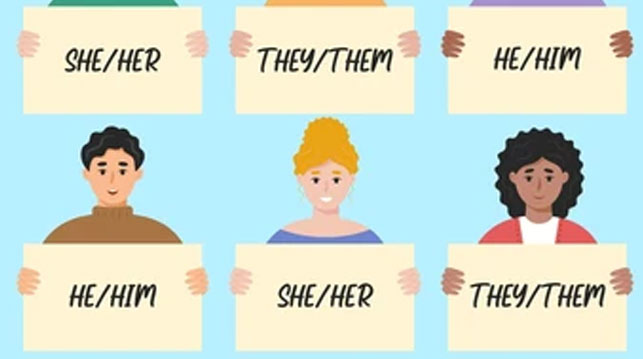
In conversation, I sometimes find myself saying something that makes perfect sense to me, only to realize that I’ve left out some critical context or background information. The blank stare I receive prompts me to reflect on what I’ve said or left out, and I go back and fill in the gap.
Writing, as one-sided communication, does not allow for such negotiation of meaning, so precision is vital. Unfortunately, many writers are challenged by missing information when there’s no one around to ask them to clarify their thoughts.
One specific and common problem involves something called a vague antecedent (literally, “what comes before”).
We use pronouns for people, places, and things when we refer to them more than once within a single sentence or group of sentences. For example, in the sentence, “The cat sat in the sun cleaning himself,” the cat is mentioned and then referred to again using the pronoun himself. In the sentences, “The students took notes while they were reading their textbooks. Then they quizzed each other on the vocabulary,” the students are referred to three more times using the pronouns they, their, and they again. In these sentences, the cat and the students are the antecedents (because they come before the pronouns), and it is perfectly clear to which antecedents the pronouns refer.
Get a free sample proofread and edit for your document.
Two professional proofreaders will proofread and edit your document.
But this is not always the case. There are many common situations that can lead to vague antecedents and unclear pronoun use.
Distant Antecedent
Sometimes an antecedent is simply too far away in the sentence or paragraph for the reader to recognize it.
Cloud Lake State Park, located in a new-growth forest, is the most popular outdoor recreation area near Yorktown, a city known for its many trails and parks. It is popular in the summer for nature lovers.
By the time it rolls on the scene, too many other words have come between it and Cloud Lake, which leads the meaning of it to be vague.
The vagueness of a distant antecedent can be corrected by rewriting the sentence or passage to shore up the gap between antecedent and pronoun.
Cloud Lake State Park is popular in the summer for nature lovers. It is located in a new-growth forest and is the most popular outdoor recreation area near Yorktown.
Ambiguous Antecedent
Sometimes there are just too many potential antecedents in a sentence. Take a look at this one.
The children were playing outside with a sprinkler, a basketball, and a hula hoop. Their dad later accidentally ran it over with the lawn mower.
 Here, it could be referring to the sprinkler, basketball, or the hula hoop. Since the pronoun isn’t they, we know it’s got to be one of them, but we can’t tell which.
Here, it could be referring to the sprinkler, basketball, or the hula hoop. Since the pronoun isn’t they, we know it’s got to be one of them, but we can’t tell which.
To correct this, you could restate the antecedent:
Their dad later accidentally ran the hula hoop over with the lawn mower.
But such repetition may sound awkward. It’s also possible to rearrange or combine the sentences to replace it with a more specific pronoun, such as which.
The children were playing outside with a sprinkler, a basketball, and a hula hoop, which their dad later accidentally ran over with the lawn mower.
Anticipatory Reference
Anticipatory reference just means using the pronoun for an antecedent that hasn’t yet been mentioned.
It was there, and I was hungry. I didn’t know it was there until I opened the cabinet, which needs painting. I ate that whole box of cookies.
Good writing doesn’t leave the reader in the dark (unless it’s a murder mystery, or something). The simple fix is to reverse the order of the clauses so that the antecedent comes first, like it’s supposed to.
I ate that whole box of cookies. It was there, and I was hungry. I didn’t know it was there until I opened the cabinet, which needs painting.
(Did you notice that second set of antecedent-pronoun, cabinet and which?)
Missing Antecedent
Sometimes writers use a pronoun believing the reader will just know the antecedent in question. For example:
At school, they expect kids to be very quiet while eating lunch.
While someone reading this sentence may well assume they refers to teachers or other staff, it is best to be precise and state who has this expectation.
At school, the teachers expect kids to be very quiet while eating lunch.
If it is truly irrelevant who expects the children to be quiet, another fix is to take the pronoun out of the sentence altogether:
At school, kids should be very quiet while eating lunch.
Problems with pronouns and antecedents can significantly interfere with your readers’ understanding, so make sure each pronoun’s referent is crystal clear.
Sarah P.
Get a free sample proofread and edit for your document.
Two professional proofreaders will proofread and edit your document.
Get a free sample proofread and edit for your document.
Two professional proofreaders will proofread and edit your document.
We will get your free sample back in three to six hours!